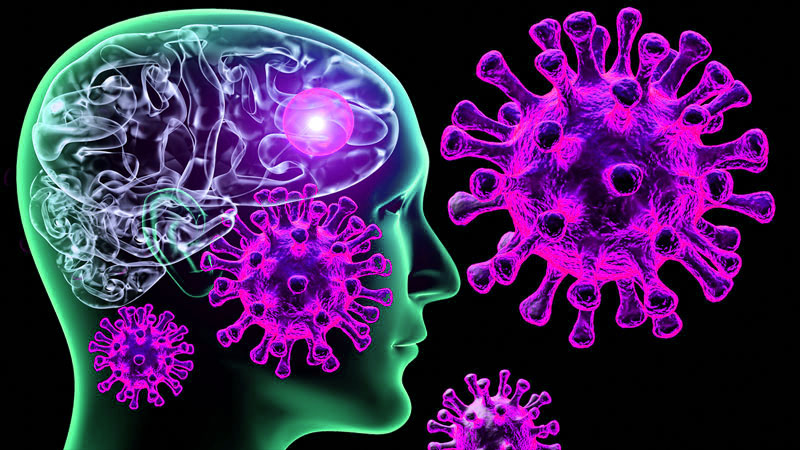
In COVID-19-Positive Stroke Patients, More Severe Strokes and Worse Outcomes Than in COVID-19-Negative Patients
COVID-19-positive stroke patients are more likely to experience stroke in areas of the brain that are associated with more severe strokes, to have worse outcomes, and to die in the hospital than COVID-19-negative stroke patients, according to a large, retrospective, observational study by experts from Mount Sinai Health System, published December 7 online in the journal Stroke.
COVID-19-Positive Stroke Patients: the Mount Sinai study
The study examined risk factors, stroke characteristics, and short-term outcomes of stroke patients at Mount Sinai, a large academic health system that was at the epicenter of the COVID-19 pandemic in New York City in the spring of 2020.
“Our findings suggest that COVID-19 causes a hypercoagulable state that may independently increase the risk of severe stroke,” said Mandip Dhamoon, MD, DrPh, Associate Professor of Neurology at the Icahn School of Medicine at Mount Sinai and first author of the paper. “More research is needed to help clarify whether anticoagulation may improve outcomes after COVID-19-related stroke.”
SARS-CoV-2, the virus that causes COVID-19, has been associated with an increase in clotting events, including severe strokes in young patients, as reported in a letter by Mount Sinai stroke physicians published in The New England Journal of Medicine on April 28. But characteristics and outcomes of COVID-19 patients with stroke have not been well studied.
To address this information gap, a team of stroke experts from the Department of Neurology at the Icahn School of Medicine at Mount Sinai performed a retrospective observational study of consecutively admitted patients in the Mount Sinai Health System with discharge diagnosis of acute cerebrovascular events who were admitted from March 1 through April 30, 2020.
Patients were stratified by COVID-19 status, and demographic variables, medical comorbidities, stroke characteristics, imaging results, and in-hospital outcomes were examined
The team studied 277 stroke patients, of whom 105 (38 percent) were COVID-19-positive. Compared to COVID-19-negative patients, the positive patients were more likely to have a stroke of undetermined cause (58.0 percent vs. 22.3 percent), and were more likely to have had an ischemic stroke (stroke caused by a clot) in the temporal, parietal, occipital, or cerebellar regions of the brain.
Strokes in these temporal regions are in contrast to subcortical strokes, which involve deeper areas of the brain.
Temporal strokes tend to be more severe because they can impact more complicated neurologic functions like language, vision, attention, and planning.
Outcomes of the strokes were worse among COVID-19-positive patients, including longer hospital stay, greater percentage requiring intensive care unit care, and greater rate of neurological worsening during admission.
Importantly, COVID-19-positive stroke patients were nearly three times more likely than those who were COVID-19-negative to die in the hospital (33.0 percent vs. 12.9 percent).
“This project was the ultimate team effort, thanks to collaboration from countless students, residents, and members of our interdisciplinary stroke team who volunteered their time,” said Laura Stein, MD, Assistant Professor of Neurology at the Icahn School of Medicine at Mount Sinai and senior author of the paper.
“Significant work remains to better understand the etiology, optimal prevention strategies, and long-term outcomes for patients with COVID-19 and strokes, but in the meantime, public health campaigns must continue to emphasize the importance of seeking care for strokes, even during pandemic conditions.”
At Mount Sinai, future research will include ongoing collection of clinical and diagnostic characteristics of patients admitted to the Health System with cerebrovascular disease and COVID-19, allowing longitudinal outcome collection, in-depth neuroimaging, and granular neurocognitive testing to elucidate the long-term effects and outcomes of COVID-19 infection after strokes.
Read Also:
Cincinnati Prehospital Stroke Scale. Its Role In Emergency Department
No Emergency Calls For Stroke Symptoms, The Issue Of Who Lives Alone Because Of COVID Lockdown
How To Rapidly And Accurately Identify An Acute Stroke Patient In A Prehospital Setting?
Stroke And COVID-19, Case Report Of 4 Patients


